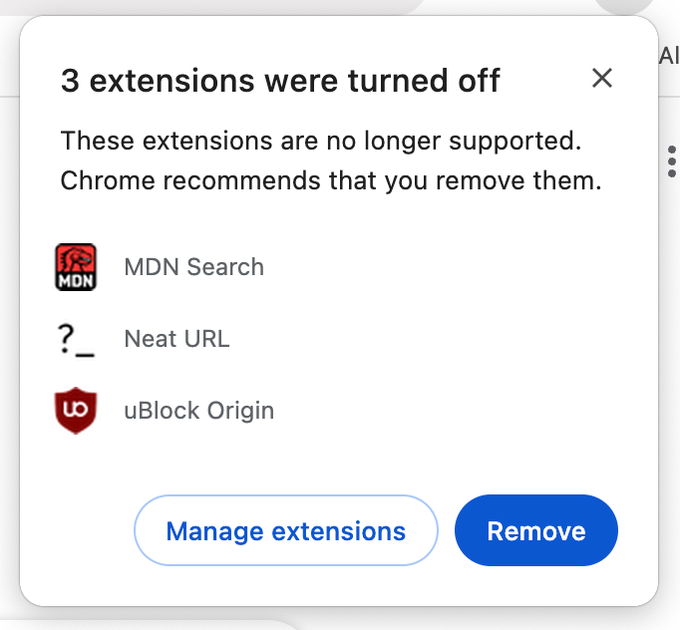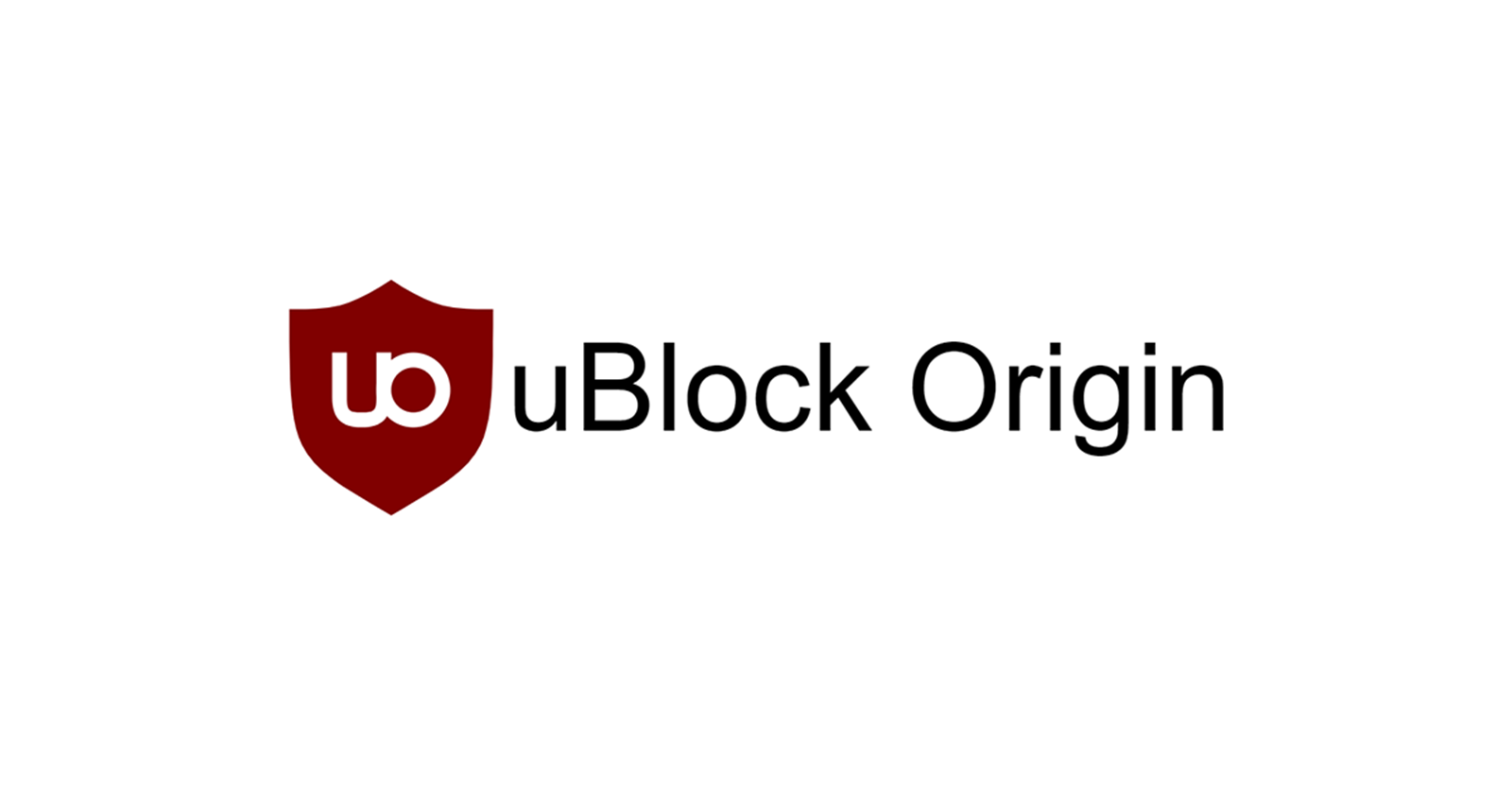Can't use your favorite ad blocker through Chrome anymore? Switch to Brave.
— Brave (@brave) October 14, 2024
Our browser's built-in ad blocker isn't weakened at all by Google's latest changes to extensions. Plus, we're still supporting uBlock Origin and other popular Manifest V2 extensions. pic.twitter.com/BNAtkb9bYp
It was only a matter of time. Google Chrome’s smooth transition from Manifest V2 to V3 has finally reached the point of no return for popular ad-blocking extensions. uBlock Origin? Turned off. Neat URL? Gone. Even MDN Search? Well, it’s searching for a way back.
If you’re staring at a screen with a warning that your favorite Chrome extensions are no longer supported, you’re not alone. It’s happening. Google has started pulling the plug on Manifest V2 extensions, and it’s taking our beloved ad blockers down with it.
Remember back in August when Chrome started throwing up warnings about extensions being no longer supported? That was the first sign that Manifest V3, a new system under the hood of Chrome, was on its way. Manifest V3 sounded cool and all, but it also meant some extensions, especially the popular ad blockers, were going to have a tough time.
Fast forward to earlier this month, things started getting serious. Google started playing the grim reaper in its testing ground, Chrome Canary, where popular ad blockers like uBlock Origin began getting the boot. Chrome users then started seeing warnings about Chrome turning off these extensions in the latest versions. Now, reports are coming in that Google Chrome has begun forcefully turning off uBlock Origin and other Manifest V2 extensions.

The ad-blocking world was already buzzing when Raymond Hill, the developer of uBlock Origin, confirmed the inevitable doom. With the introduction of Manifest V3, ad blockers using the older V2 architecture are being systematically shut down in Chrome’s latest versions. Not long ago, Google removed the flag in Chrome Canary that kept V2 alive.
uBlock Origin fans can still opt for “uBlock Origin Lite,” but, like getting diet soda instead of the real deal, you may notice the difference. The newer Lite version, built for Manifest V3, just doesn’t pack the same punch. Hill himself admitted the new version has “limited filtering capabilities,” leaving many sites’ pesky ads with fewer hurdles to jump.
But hey, Brave browser wants you to know they’ve got your back. Their team was quick to brag that Brave’s built-in ad blocker is safe from the Manifest V3 drama. And yes, they’re still supporting uBlock Origin.
“Can’t use your favorite ad blocker on Chrome anymore? Switch to Brave,” they said in a post on X. And hey, Firefox is another alternative that won’t yank your ad blocker out of your hands.
The big change here is Manifest V3’s new rules, particularly the Declarative Net Request API, which restricts how much filtering power extensions have. In layman’s terms, ad blockers are getting declawed. Sure, they can still swipe at some ads, but they just aren’t as feisty.
To be fair, Google says over 93% of “actively maintained” extensions on the Chrome Web Store have already made the switch to V3. But many users aren’t happy about how these changes are impacting their browsing experience, especially those who relied on uBlock Origin’s robust filtering to keep the web…you know, actually usable.
The full Manifest V3 rollout is expected to hit by early 2025, at which point V2 extensions will be entirely extinct. If you’re not ready to let go of your favorite extensions, you might have to start exploring alternative browsers like Firefox and Brave since Edge is also affected. Chrome’s ad-blocking era seems to be on life support — time to decide if you want to stick around or jump ship.
Chromium Edge is about to have the same problem
— Tom Warren (@tomwarren) October 15, 2024
In the meantime, we’ll just sit back and wait for Google’s next move — while desperately hoping that someone figures out a workaround before the full Chrome V3 apocalypse strikes.
Let’s hear it from you — are you staying loyal to Chrome or moving to greener (ad-free) pastures?
TechIssuesToday primarily focuses on publishing 'breaking' or 'exclusive' tech news. This means, we are usually the first news website on the whole Internet to highlight the topics we cover daily. So far, our stories have been picked up by many mainstream technology publications like The Verge, Macrumors, Forbes, etc. To know more, head here.


